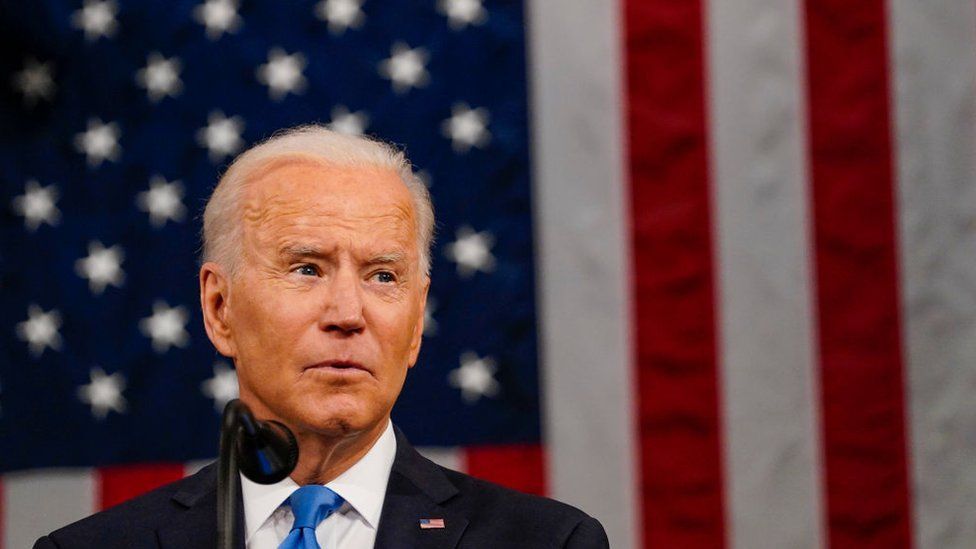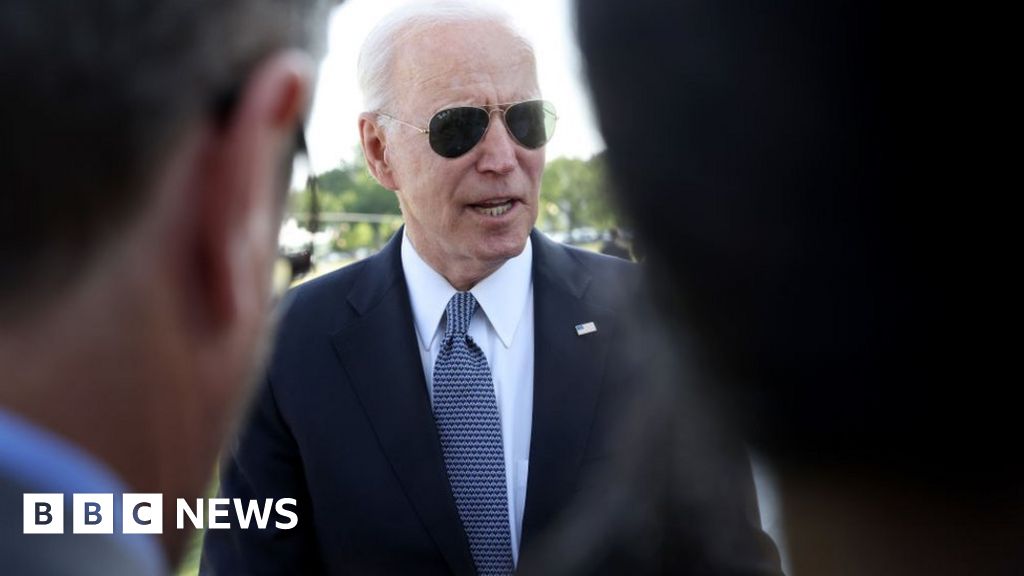
image copyrightGetty Images
US President Joe Biden will propose his 2022 budget on Friday – a $6tn (£4.24tn) plan that would add more than $1tn annually to the federal deficit.
The sweeping plan, which tops Donald Trump’s $4.8tn proposal last year, promises infrastructure upgrades and an expanded social safety net.
The proposal will be given to Congress and needs approval to be implemented.
If passed, it will bring the US to spending levels not seen since World War Two.
The budget provides a picture of a president’s priorities. In this case, Mr Biden’s proposal reflects his vision of an expanded government with spending levels to match.
President Biden’s plans include more money for roads, bridges, broadband internet and water pipes.
The surge of new spending would also allocate $200bn over 10 years to provide free pre-school to all three and four-year-olds and $109bn to offer two years of free community college to all Americans.
Even though the Democrat will propose a number of tax increases and other methods to raise revenue, the plan would bring the national debt to record highs within the next few years.
White House Press Secretary Jen Psaki said on Thursday that the administration’s proposals – decried by Republicans as too costly – “will put us on better financial footing over time”.
Congress has until the end of September to pass new spending bills. If they fail to pass a new budget, the government could partially shut down.
Mr Biden’s Democrats have a narrow majority in the House, and a meagre one-seat advantage over Republicans in the 100-seat Senate.
Unlike most other bills, budget measures can be passed with just 51 votes instead of the 60 typically required meaning he might be able to pass some of his plans without Republican support.
The budget proposal comes as the White House struggles to negotiate a deal with Democrats and Republicans on the American Jobs Plan, an infrastructure bill that Biden has pitched as a “once in a generation investment”.


The era of big government is back – that is, if Joe Biden has his way.
Back in 1996, Bill Clinton famously said that big government was a thing of the past, as the Democratic president acquiesced to Republican efforts in Congress to slash welfare benefits and other federal funding.
In the two decades since, following the September 11 attacks, the Great Recession and a global pandemic, American support for government activism has returned – and Biden, long considered a political centrist, is proposing a budget that reflects that.
There are no massive new government proposals in Biden’s budget – no publicly run health insurance or free college for all – but his administration incorporates the president’s current legislative agenda and boosts spending for numerous social programmes, with a focus on health and education.
The Biden plan anticipates massive deficits – over $1tn annually – which will prompt condemnation from fiscal hawks on the left and right. And Republicans will pick apart specific spending items.
Presidential budgets are blueprints, however, and seldom resemble what Congress ultimately approves. What Biden’s proposal says is that he wants to keep the government spending spigots wide open – and that he thinks the American people will have his back.



